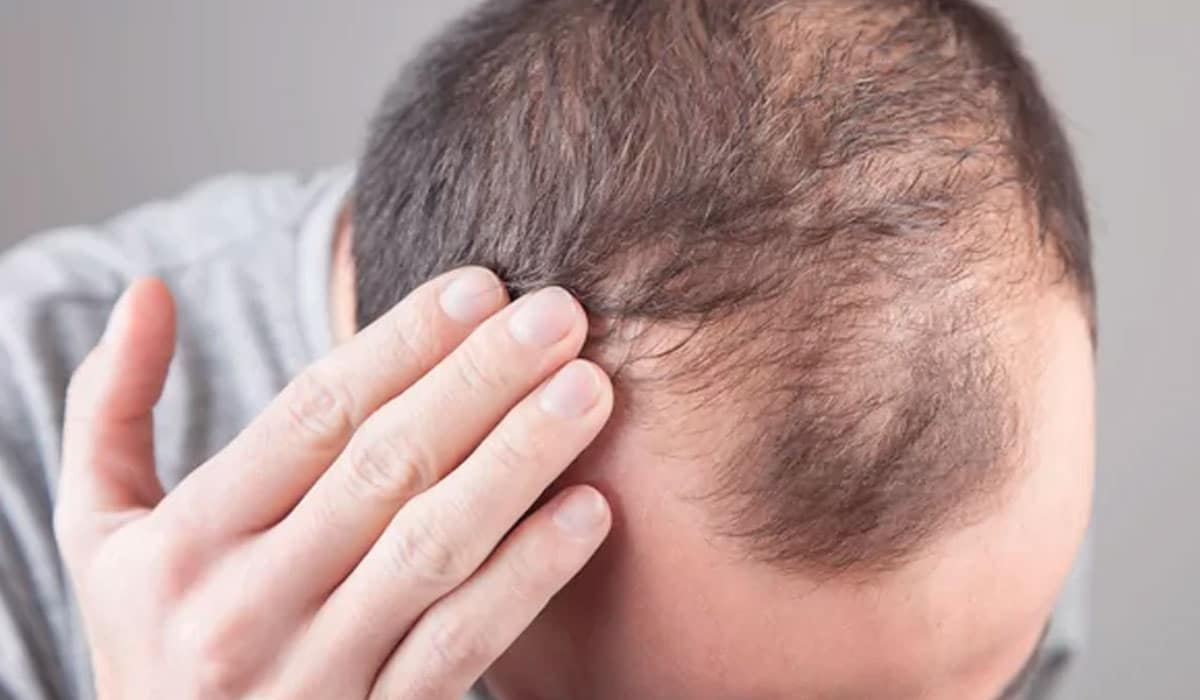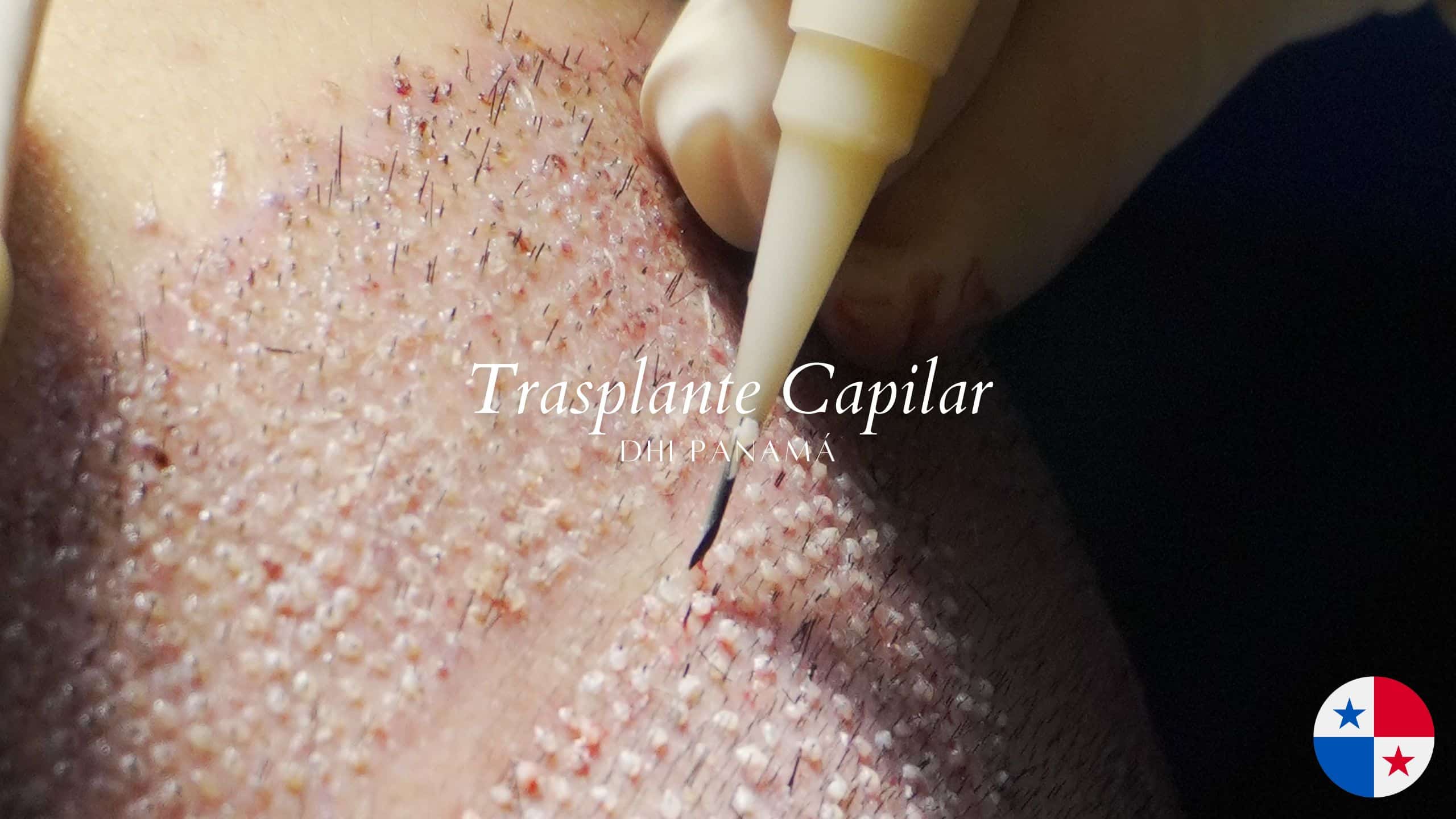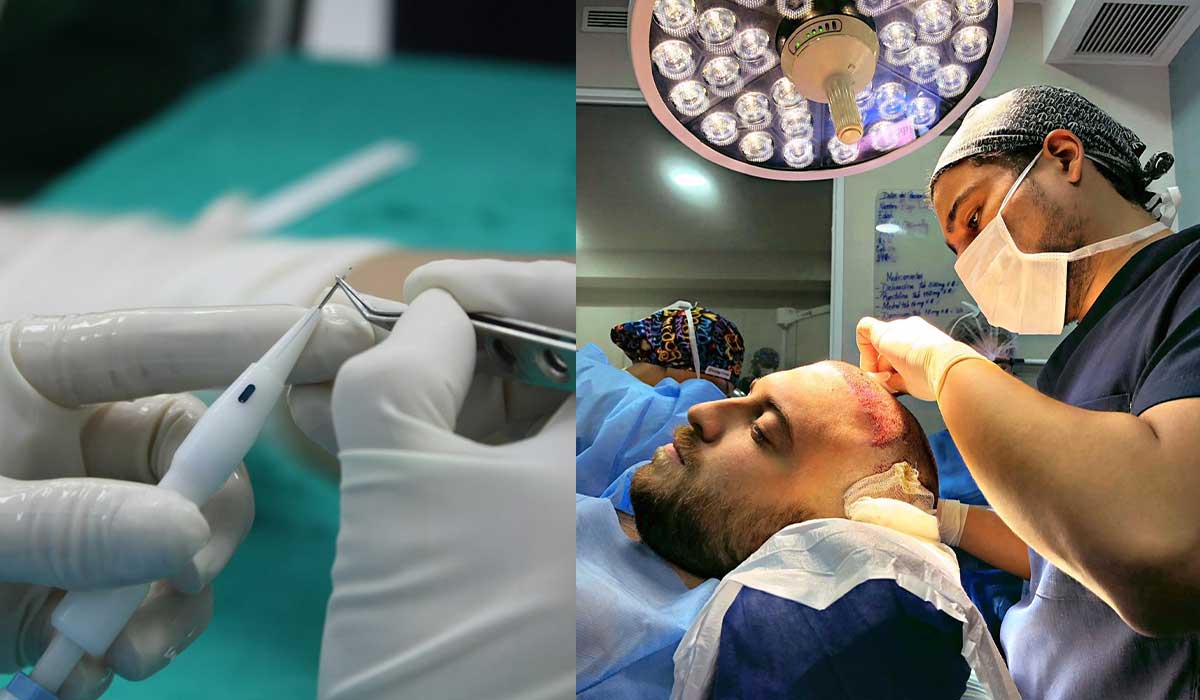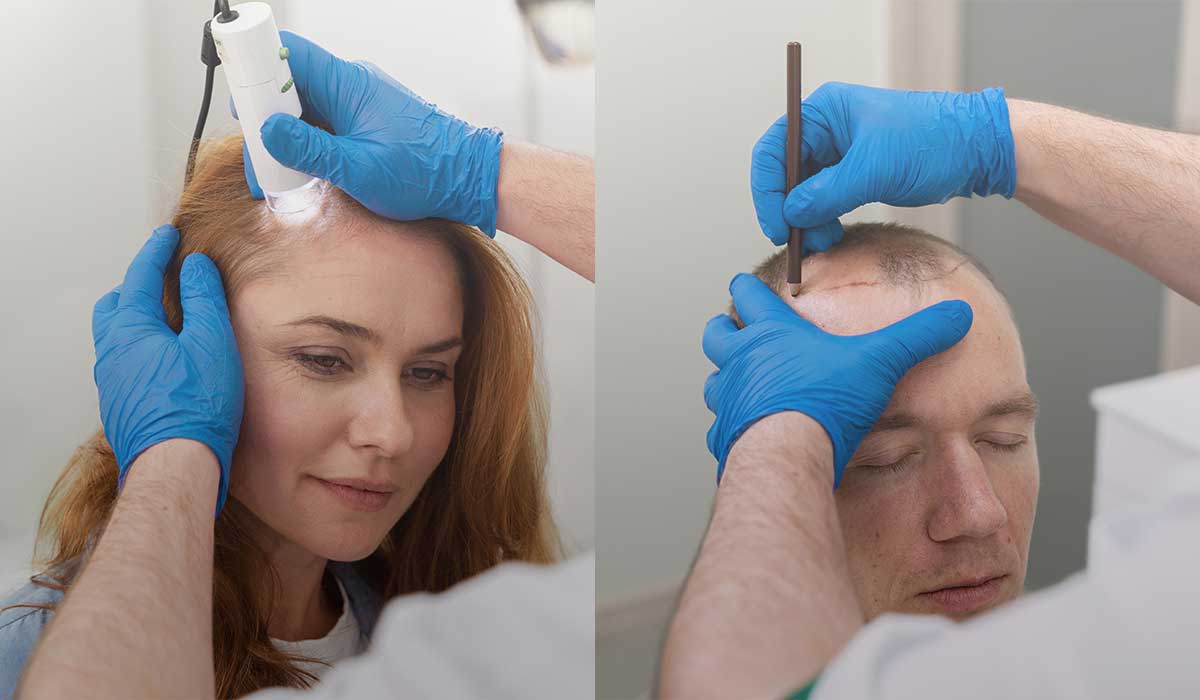
Learn more about androgenetic alopecia
Androgenetic alopecia, also known as male or female pattern baldness, is a common form of hair loss that affects both men and women. It is a hereditary condition that can be passed down from either parent.
Androgenetic alopecia is caused by a combination of genetic and hormonal factors. Testosterone and its byproduct dihydrotestosterone (DHT) play a significant role in the development of this condition. DHT is a hormone that is produced from testosterone by the enzyme 5-alpha reductase. DHT binds to hair follicles and shrinks them, leading to a shorter and thinner hair growth cycle, and eventually, hair loss.
In men, androgenetic alopecia typically starts with a receding hairline and thinning hair on the crown of the head, eventually leading to complete baldness. Women, on the other hand, usually experience diffuse thinning of hair all over the scalp, with the hairline remaining intact. However, women can also experience significant hair loss in some cases.
Androgenetic alopecia is diagnosed based on a physical examination of the scalp and hair loss pattern, as well as medical history and family history. A scalp biopsy may also be performed to confirm the diagnosis.
how to treat androgenetic alopecia
There are several treatment options available for androgenetic alopecia, including medications such as minoxidil and finasteride. Minoxidil is a topical solution that is applied directly to the scalp, which helps to stimulate hair growth. Finasteride is an oral medication that blocks the production of DHT, reducing hair loss and promoting hair growth.
Hair transplant surgery is another option for those who are experiencing significant hair loss. During this procedure, hair follicles are taken from a donor area on the scalp and transplanted into the balding areas.
In conclusion, androgenetic alopecia is a common form of hair loss that is caused by genetic and hormonal factors. It can affect both men and women, and typically follows a predictable pattern of hair loss. Treatment options include medications and hair transplant surgery, but it is important to consult a doctor to determine the best course of action.
If you are worried about the way your hair has been falling out, contact us at DHI Panama, you can have a free online consultation through WhatsApp 6349-5550; by filling out our contact form or writing to the chat on the website.





